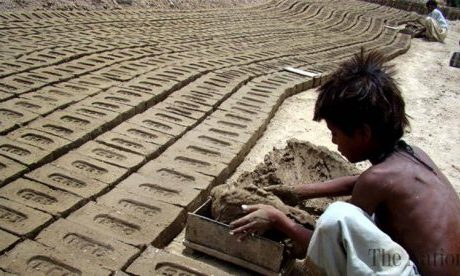Six months after Muhammed Yusuf had been sold, tortured and forced to watch as a friend died, he found himself back at the parched, dusty bus station where his ordeal began, facing the man who had made him a slave.
Unembarrassed and unrepentant, the smuggler was still touting for business among the crowds flooding into Agadez, an oasis town on the fringe of the Sahara desert in central Niger that has for centuries been a trading centre and gateway to shifting paths across the desert.
“I told him ‘my friend died in Libya because of you’,” Yusuf said a few days after the meeting.
Then, desperately hungry, he asked him for some food.
The man shrugged off both appeals, and walked away, saying only: “I am sorry, but God will help you.”
Yusuf, a 24-year-old Nigerian, was one of thousands of people who had travelled to Libya looking for work, or hoping to sail to Europe, who were instead sucked into a grim and violent world of slave markets, private prisons, and brutal forced brothels.
The dangers of attempting to cross the Mediterranean to Europe, in overcrowded, unseaworthy vessels, have been highlighted by a series of desperate rescue missions and thousands of deaths at sea in recent years.
Last week, at least 245 people were killed by shipwrecks, bringing the toll for this year alone to 1,300.
Less well-known are the dangers of Libya itself for migrants fleeing poverty across West Africa.
The country’s slide into chaos following the 2011 death of dictator Muammar Gaddafi and the collapse of the government have made it a breeding ground for crime and exploitation.
Two rival governments, an Isis franchise and countless local militias competing for control of a vast, sparsely populated territory awash in weapons, have allowed traffickers to flourish, checked only by the activities of their criminal rivals.
Last year, more than 180,000 refugees arrived in Italy, the vast majority of them through Libya, according to UN agency the International Organisation for Migration (IOM).
That number is forecast to top 200,000 this year – and these people form a lucrative source of income for militias and mafias who control Libya’s roads and trafficking networks. Continue reading
Sources
- The Guardian article by Emma Graham-Harrison
- Image: The Nation
